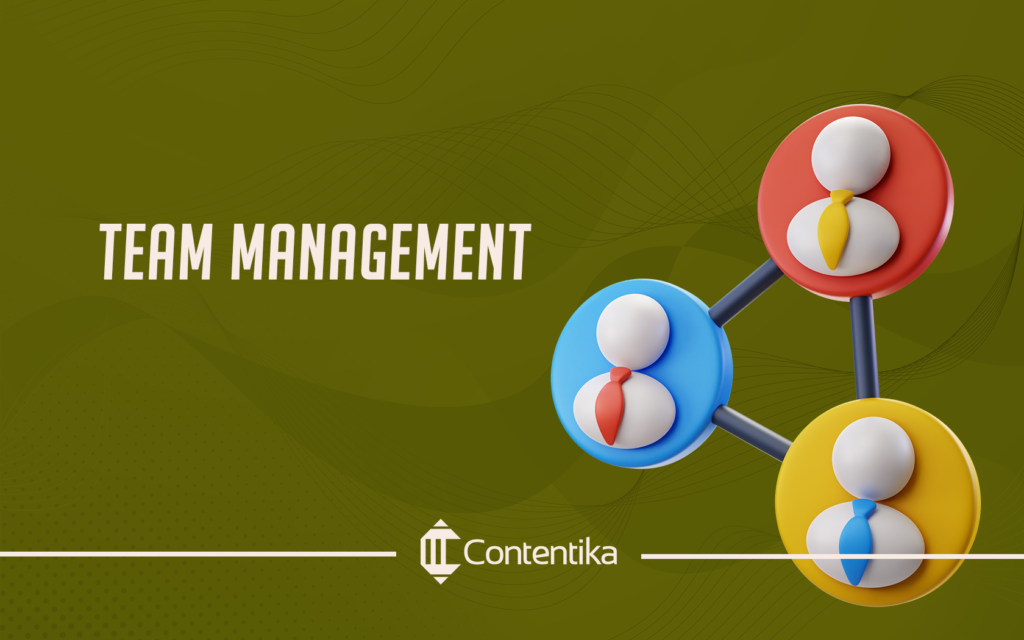In marketing, a content manager is the engine of a successful campaign. They are the ones who drive the creation and distribution of content that resonates with customers and potential buyers.
They are like a symphony conductor, creating the perfect blend of visuals, words, and ideas to create a harmonious and impactful marketing experience.
Content managers are essential to any modern team; without them, campaigns would be uninspired and ineffective. So what does it take to be a successful content manager?
Who is a Content Manager?
A content manager is accountable for the strategic planning and creation of content for websites, blogs, discussion posts, social media posts, and other marketing materials that are consistent with the company’s brand. They must be able to think critically and develop unique content ideas that will engage viewers and drive traffic to a website or product.
Content managers are also responsible for the smooth operation of their content production team. They manage their tasks and set deadlines to ensure that all publications are delivered on time and of high quality.
Roles of a Content Manager

Content managers play an integral role within the team. As the ‘keeper of the content,’ they are responsible for ensuring that all written materials the team creates align with brand messaging and industry standards to develop a consistent brand identity. Here’s a rundown of the roles of a content manager.
Content Strategy

From developing a cross-platform content strategy and roadmap to setting up processes and policies, the content manager oversees the business goals and overall marketing strategy and creates a plan that effectively executes it.
They need to identify gaps in an existing content strategy, determine which channels are most effective for reaching target audiences, and develop plans for creating the website’s content that follows brand messaging.
Data Analysis

One of the most important roles of a content manager on a team is to analyze data. Content managers need to be able to do more than just crunch numbers — they must be able to interpret them as well.
This requires an understanding of and advanced knowledge of both qualitative and quantitative analytics. Qualitative analytics examines customer behavior, user engagement, and sentiment analysis and involves monitoring web traffic.
It requires a thorough understanding of the why behind the numbers. Quantitative analytics looks at things like sales numbers, growth, trends in organic traffic, cost per lead or conversion, return on investment (ROI), and more.
Copywriting/Editing

Copywriting is essential to any successful company’s content strategy since it helps capture an audience’s attention and convey the main message of a company. They ensure that their copy is clear, concise, and engaging.
Editing is another important aspect of creating effective content. They typically perform a “light” edit to ensure all copies are free of typos and grammatical errors. Moreover, when proofreading content, they often perform a “deep” edit where they assess whether the content meets the company’s objectives and the objectives of the project.
Content Distribution

Content distribution is perhaps the most “visible” role, directly impacting how many people see and interact with your web content. Whether you want to build relationships on social media and attract more website visitors, content distribution can be used to achieve any of these goals.
A content manager’s job is to recognize how their web content will appear in different channels and understand how to adjust the format for each platform. Understanding when to post your content is also important in distribution.
SEO and Keyword Research

A content manager’s work is critical to your team’s success. One essential task that falls under your responsibility is SEO and keyword research. This involves identifying relevant words or phrases to draw attention to your content and ensure it ranks higher in search engine results pages (SERPs).
One of the best analogies to explain SEO and keyword research is that you are like a hunter, stalking your prey (the keywords) in the internet wilderness. You must be keenly aware of what words and phrases will draw attention from potential customers.
Team Management

A content manager must often assume a leadership role when coordinating the content team. They are responsible for ensuring that all tasks are completed on time, and everyone is working towards the same goal.
They often work closely to mediate team members’ conflicts and help them focus on their goals. This can involve anything from ensuring everyone is on the same page about a project to keeping track of individual team members’ progress.
Skills Needed to be an Effective Content Manager

Being an effective content manager requires a variety of skills. Here are some of the key skills you’ll need to succeed:
Writing & Research Skills

To be a successful content manager, possessing excellent research and writing skills is important. Writing is at the heart of every successful piece of content. Content writers and managers must have a good command of English and be able to write concisely and poignantly.
Research skills enable them to stay up-to-date with the latest changes in their industry and provide valuable insights into trends and topics in the digital world that are relevant to readers.
They should be able to conduct thorough keyword research, analyze competitor strategies, develop content itself, and explore new content areas. They must also be familiar with tools such as Grammarly, Google Trends, SEMrush, and Ahrefs to understand what the market is looking for.
Technical Knowledge

For starters, having a solid understanding of HTML, CSS, and other web development languages is essential for any content manager. Not only do these skills aid in creating the website’s content, but they also help to ensure that the content is properly formatted and presented correctly on the web page.
Having a solid relationship with SEO practices is also a must-have skill. Content should be optimized with proper keywords, tags, and metadata to ensure it is search engine friendly.
Content managers must understand the basics of SEO and how to properly apply them in their content to make it easier for search engines to index and recognize their work.
Project Management

Content managers must be excellent project managers. This means deeply understanding every step in multimedia content creation, from developing ideas to publishing the finished product. It also involves managing other people’s time and resources effectively.
Being a good project manager is more than just organizing tasks and setting deadlines. They need to anticipate all the risks involved in a project and create contingency plans. This means being able to think ahead and spot problems that could arise from various elements, having creative solutions to fix them should they occur, and overseeing all marketing content initiatives.
To illustrate this point, a content manager’s responsibilities must include creating a campaign involving several writers working in different locations. In addition to managing the writing process, this content manager must consider potential problems, such as delays due to technical issues.
Analytical Thinking

Content managers must deeply understand their audience, market trends, and the content they create. This requires sharp analytical thinking skills, which can be honed by studying the data available in digital analytics platforms. They must be able to interpret this data to make informed decisions about optimizing content.
For example, a content manager may use analytics to determine the types of web content that appeal most to their audience and how long readers stay on each page. They may also use insights from analytics platforms to identify where changes should be made to make website analytics improve their content’s reach, engagement, or monetization.
Attention to Detail

Paying attention to detail is one of the most important skills for a content manager. After all, what good is developing compelling and well-crafted content if there are glaring typos or mistakes?
They need to review every piece of web content for accuracy, ensuring that all facts and figures match up, any links lead to the correct URLs, and the grammar is perfect. Careless mistakes can damage a company’s reputation and credibility, so attention to detail is critical for any content manager.
People Skills

Apart from having technical and analytical skills in the marketing industry, these managers must also have strong people skills (as well as verbal communication skills) to succeed. After all, they are only as effective as the team around them.
These managers must build relationships with various stakeholders, such as designers, developers, content writers, editors, and other team members. They should be able to motivate and inspire others while at the same time taking on responsibility and accountability for their work.
Strong communication and leadership skills are also important for content managers; they must articulate their ideas clearly and effectively to ensure everyone understands their expectations.
Time Management & Organization

The best ideas and strategies are useless if they are not prioritized and completed on time. As a content manager, you must be able to juggle multiple tasks, set priorities, and meet deadlines without becoming overwhelmed.
To do this, you need to develop strong time management skills. This includes being able to estimate how long tasks will take, breaking down large projects into smaller, more manageable tasks, and delegating tasks when possible. You also need to be able to stay organized and keep track of your progress.
Keeping up with several projects and tasks can quickly become convoluted if you don’t plan them well. Using organizational strategies such as to-do lists, task-tracking tools, and goal-setting will help you stay on top of all tasks.
Adaptability & Creativity

The ability to adapt to any slight change in the company is the number one skill in content management. These managers must be able to quickly pivot their strategies without breaking a sweat. With ever-changing algorithms and customer preferences, they must always stay ahead of the curve and not become complacent in any area.
Content Managers need lots of creative new content ideas here, too, which will spark the interest of potential customers and keep them engaged. They need to be able to think outside of the box and come up with innovative solutions.
Benefits of Having a Content Manager on the Team
Here are the benefits of having a content manager on the team:
- Achieve higher ROI: A content manager is an expert in creating effective and engaging web content tailored to a particular audience, helping to generate better investment returns.
- Improve brand visibility: Content managers understand how to use analytics and data-driven insights to create targeted campaigns to improve a brand’s visibility.
- Generate more leads: Content managers are adept at creating web content that drives organic website traffic and engagement, ultimately increasing customer leads.
- Build relationships with customers: A content manager can use their knowledge of the latest trends and technologies to develop strategies for engaging customers and building long-term relationships.
- Stay ahead of the competition: By staying informed of industry trends and emerging technologies, content managers can create strategies to keep their brands ahead of the competition.
- Increase social media reach: These managers can leverage their expertise in creating content tailored to each platform, helping brands reach a wider audience.
- Optimize SEO efforts: They can develop targeted SEO strategies to help a brand gain visibility in search engine results.
- Create engaging content: These managers understand how to create informative and entertaining existing content, ensuring it resonates with the target audience.
- Drive customer engagement: Content managers understand how to use storytelling techniques to capture customers’ attention and drive engagement.
- Analyze performance: Content managers can use data-driven insights to analyze the effectiveness of marketing campaigns and make necessary adjustments.
- Stay organized: Content managers can keep track of all content creation, editing, and distribution processes, helping ensure that everything runs smoothly.
How to Become a Content Manager

When it comes to making your mark in the digital world, becoming a content manager is one of the most rewarding and enjoyable career paths.
To become a content manager, you need to understand many different disciplines. You’ll need to be aware of the following areas:
1. Pursue Your Educational Goals and Earn a Bachelor’s Degree

A content manager must have an excellent command of the English language and be familiar with various writing styles, so pursuing a bachelor’s degree in English, journalism, or communications is highly recommended. Additionally, some employers may require that you also have a degree in marketing or public relations.
2. Take a Content Marketing Certification Course

Taking a content marketing certification course can give aspiring Content Managers the skills they need to help promote a company’s content and take their careers in this field to the next level.
This type will cover topics such as creating effective campaigns, writing compelling copy, developing strategies for distributing content on multiple platforms, and more.
With a marketing certification, you’ll better understand how to create and manage content that engages and entertains your audience effectively.
3. Understand SEO Principles & Strategies

You’ll also need to understand the basics of SEO (search engine optimization), so potential customers can find your content. SEO consists of techniques and strategies to increase a website’s organic rankings in search engines like Google and Bing, thereby increasing visibility and traffic.
This includes keyword research, optimizing titles and tags, creating effective meta descriptions, and more. Having a working knowledge of SEO is essential for the success of any content manager, as it will directly influence how well potential customers receive your content.
4. Get Experience in the Field

Aside from education and certifications, getting hands-on experience in the field is important. This could be working as an intern or freelance writer for a content marketing agency or writing blog posts or articles for a company website. You can also take on smaller projects, such as creating short videos, ebooks, and infographics.
Gaining practical experience in content marketing will give you a better understanding of what it takes to succeed as a content manager and boost your resume when applying for positions.
Plus, it’ll show potential employers that you have the skills and knowledge necessary to help create engaging content that can be used to drive leads and sales.
5. Get Familiar with Digital Content Marketing Tools
Having a good understanding of digital content marketing tools is essential for any Content Manager. These tools help to streamline the process of creating the website’s content and make it easier to analyze the performance of campaigns.
Tools such as BuzzSumo, Hootsuite, SEMrush, and Google Analytics and content management software like Drupal can help you monitor and track website traffic, discover trending topics and keywords, measure social media and engagement metrics, and much more.
Having a good grasp of these tools will allow you to create more effective content strategies that can help drive leads and sales for your company.
6. Make Connections in the Field and Grow Your Professional Network

Building connections and networking with other professionals in content marketing is an important step for any budding Content Manager. This will give you valuable resources, such as advice from experienced industry professionals, job leads, and insider information about digital marketing trends.
You can reach out to fellow content creators on social media platforms such as Twitter and LinkedIn, join content marketing groups on Facebook, or attend industry events like Content Marketing World.
By getting involved and making connections in the content marketing world, you’ll be able to grow your professional network and stay up-to-date with the latest trends. This will give you a competitive edge when applying for positions and make finding job opportunities that match your skills and interests easier.
7. Once You Have Experience, Look for a Job

Once you have the qualifications and experience in content marketing, you can start looking for a job. You’ll want to create a resume that showcases your relevant skills and experience, as well as any certifications or awards you may have received.
You should also highlight any projects or articles you’ve written, as these will demonstrate your ability to produce quality content. Networking is also essential here, as it will help you find job leads and gain access to more opportunities.
Finally, when applying for content manager positions, research the company and tailor your cover letter accordingly. Doing so will show employers that you understand their needs and have the skills to help them succeed. Becoming a Content Manager is within reach with the right qualifications, experience, and knowledge.
Conclusion
Content marketing is an ever-evolving landscape, requiring marketers to create and disseminate content promptly. With the right person responsible for managing your web content, you can easily keep up with these changes and build a successful marketing strategy that drives results. That’s why having a dedicated content manager on your team can make all the difference!
Content managers bring a wealth of knowledge and experience to creating strategies to help companies increase their ROI, improve brand visibility, generate more leads, build relationships with customers, stay ahead of the competition, optimize their SEO efforts, see new content opportunities, and create engaging web content.
Becoming a Content Manager is within reach with the right qualifications, experience, and knowledge. By following these steps, you can have an exciting career in content management.













